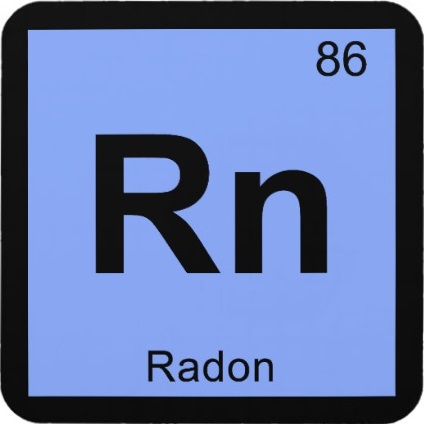Radon Testing
Why is Radon a problem?
Radon is a colorless, tasteless and odorless gas that can cause lung cancer. It occurs naturally when uranium breaks down to radium which in turn breaks down to form radon. Radon is released into the soil and easily enters your home through the foundation and well water. It can build up to dangerous levels inside houses, schools, and other buildings. The only way to know if you have radon is to test!
Radon occurs naturally when uranium breaks down to radium which in turn breaks down to form radon. Radon is released into the soil and easily enters your home through the foundation and well water. It can build up to dangerous levels inside homes, schools, and other buildings. Radon is the second leading cause of lung cancer in the United States, after tobacco smoke. Radon kills nearly 21,000 people each year, more than 800 of them in Georgia. Smokers are at an even higher risk of radon-induced lung cancer than nonsmokers. Visit the UGA Radon web page for more information and to purchase a test kit.
The EPA website has information about the health effects of high levels of Radon Gas in your home.
This service is offered through County Extension offices in Georgia. Contact your local office to see about test kit availability in your county.



Additional Extension Publications:
-
Testing for Water Quality (C 858-2) The quality and safety of drinking water is of great concern to many Americans today because of an increased interest in health and environmental quality. This new focus on water quality has led many Americans to consider testing their water. This publication is intended to help you understand water testing and to identify the tests needed.
-
Your Household Water Quality: Odors in Your Water (C 1016) Homeowners sometimes experience unpleasant odors in their household water. In many cases, the exact cause of the odor is difficult to determine by water testing; however, this publication provides a few general recommendations for treating some common causes of household water odors.
-
Radon Mitigation Dos and Don'ts (C 1065) Radon is the second leading cause of lung cancer in the United States. A radon reduction system (radon mitigation) reduces high levels of indoor radon to acceptable levels. The system most frequently used is a vent pipe system and fan, which pulls radon from beneath the house and vents it to the outside. This publication educated homeowners on what they should do before, during and after a radon mitigation and what they should expect from a radon mitigator. For more information on radon, visit http://www.UGAradon.org or call 1-800-ASK-UGA1.


























































